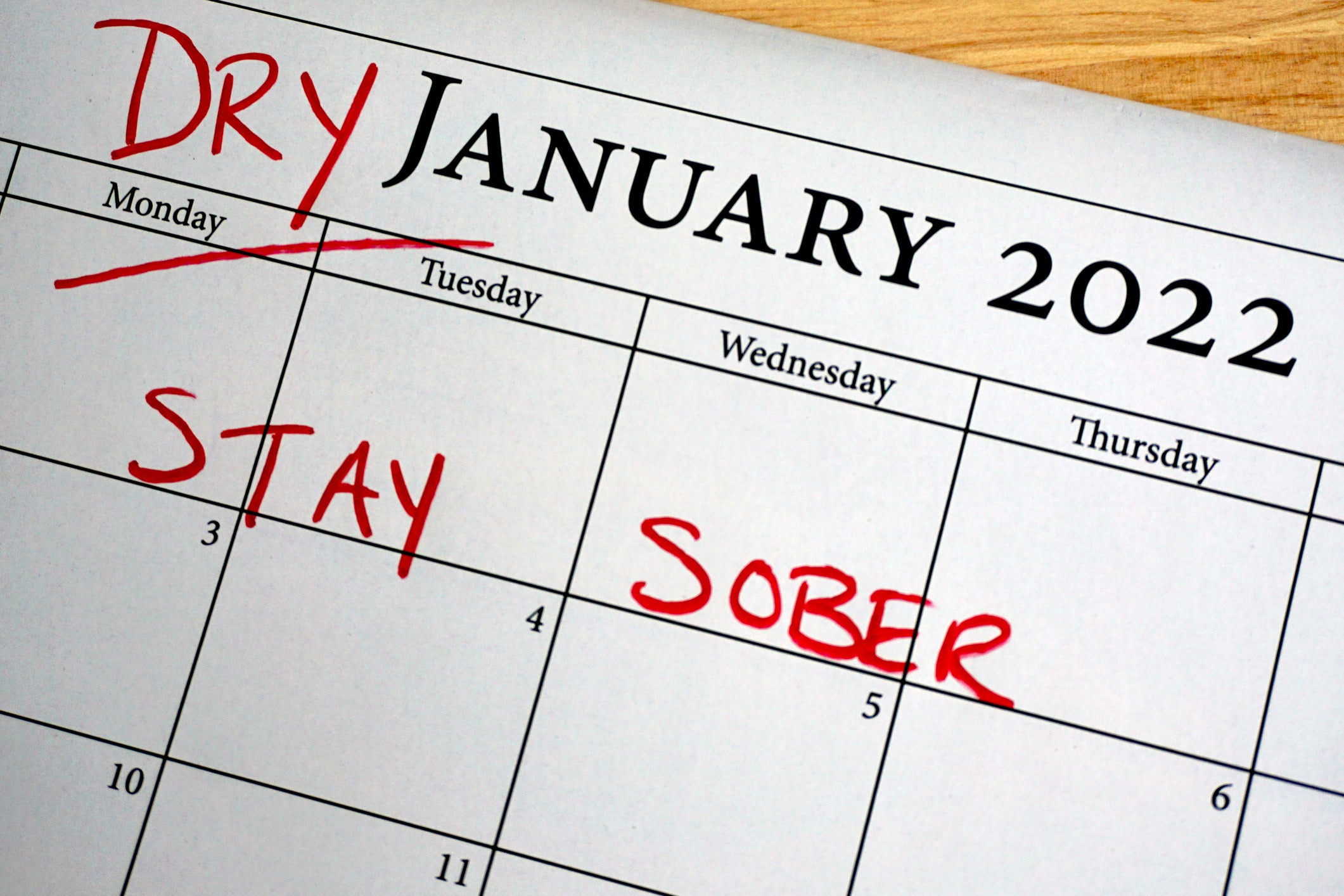If you’re struggling with Dry January, it might be a sign of a bigger problem
If I’d known about the brutal reality of alcoholism sooner, I probably would have managed to embrace recovery earlier too


Back in the days before I knew anything about alcoholism, it never occurred to me that I could be alcohol dependent myself. It was only when I tried to stop drinking – five months after my first alcohol withdrawal episode – that I realised I had a serious problem. However, it would take four detoxes and many relapses over three years before I could finally get a grip on my recovery.
It often surprises people when I tell them I didn’t drink until I was 24. I tried drinking twice when I was 18 and decided I hated it, so I remained teetotal. I only started drinking when my best friend at the time thought it would be “funny” to spike my diet coke with vodka. From that point, I began drinking regularly and within a year I was drinking two or three glasses of wine every night while working at home. By the time I was 27, that had steadily crept up to two or three bottles.
When I reached thirty, I was aware my drinking had become excessive but I was in total denial about any impact it might be having. My only concern was that I’d fallen out of the habit of going to the gym, although up until then I was managing daily gym sessions.
As the managing director of a men’s eating disorder charity I’d founded, I appeared to be “functioning” without any issues – which, in retrospect, was probably one of the early signs of my alcoholism. In the absence of any visible outward signs that my drinking was “overspilling”, why would I be any the wiser?
The first time I had any indication my drinking had caught up with me came 36 hours after I’d decided to stop, with the intention to get back to the gym. While in London, on an extremely hot day in July 2016, I couldn’t ignore how ropey I was feeling.
I was sweltering, with sweat dripping off me en route to my destination on the underground. As I stood up to get off the tube at Edgware Road, I noticed my body wasn’t doing what I was telling it to and my reactions had slowed down.
This was the first sign that something was wrong. It was as if there was a disconnect between my brain, body and ability to move – almost like an out of body experience. Clambering off the train, I somehow made it to the street level and the exit.
My anxiety was through the roof and, in total panic, I found sanctuary in a coffee shop opposite the station. At this point, I tried to hold the glass of water to my mouth to drink it but I kept spilling the water down me. A lady sitting at the table opposite was looking at me curiously.
“Do you need help? You look like you’re in trouble?” she said, after a short while. She introduced herself and it turned out she was an off duty nurse from St Mary’s Hospital. “Do you know what’s wrong with you?” she asked. “No,” was my short but breathless reply. All I could think of was that I may be having a reaction to something, but I wasn’t allergic to anything. The next minute, I passed out, and then I was in an ambulance arriving at the hospital.
Unfortunately, it would take until the third subsequent hospital visit in November 2016 to confirm that my previous episodes of illness were serious alcohol withdrawal. “You’re over the threshold,” were the words of the specialist medic from the local drug and alcohol service.
To keep up to speed with all the latest opinions and comment sign up to our free weekly Voices Dispatches newsletter by clicking here
“You need to be referred for a detox, possibly as an inpatient given the severity of your withdrawals,” he continued. Until now, it hadn’t even occurred to me that drinking was causing me to be ill – in particular, cutting back on my drinking too quickly or stopping drinking abruptly (going “cold turkey”).
“It’s really important that you continue to keep drinking to prevent any further episodes,” he stressed, which I felt was quite possibly the most confusing medical advice in the history of all medical advice. Admittedly, it took me a while to get my head around this, not realising that my nervous system would go into shock (ie alcohol withdrawal) if I went for more than a day without drinking.
There’ll be many people like myself who are over the threshold and may be suffering in silence. They may have unexplained symptoms after a few days of abstaining while participating in Dry January. Or they may have caved in and gone back to drinking, not knowing why.
What I learned, now over two years into recovery, is that if I’d known about the brutal reality of alcoholism sooner, I probably would have managed to embrace recovery earlier too.
Sam Thomas is a writer, speaker and mental health advocate
Join our commenting forum
Join thought-provoking conversations, follow other Independent readers and see their replies
Comments
Bookmark popover
Removed from bookmarks